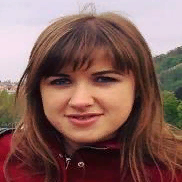International Journal of Image, Graphics and Signal Processing (IJIGSP)
IJIGSP Vol. 9, No. 12, 8 Dec. 2017
Cover page and Table of Contents: PDF (size: 1523KB)
Automatic Highly Accurate Estimation of Gaussian Noise Level in Digital Images Using Filtration and Edges Detection Methods
Full Text (PDF, 1523KB), PP.1-11
Views: 0 Downloads: 0
Author(s)
Index Terms
Noise level estimation, Gaussian noise, digital image filtering, region of interest, image edges
Abstract
In this paper we propose a highly accurate method of automatically estimation of the Gaussian noise level in digital images, which is based on image filtering and analysis of the region of interest. Noise level is an important parameter to many digital image processing applications, for example, when removing noise. As the noise level its standard deviation is calculated. The selection of the noise component in an image is performed by high-pass filtration, where the Laplacian difference is used as the filter kernel. Based on the noise component of the image, regions of interest with homogeneous areas of the image are calculated. Region of interest are selected by the iterative method using low-pass filtration, where Gaussian two-dimensional function is used as the filter kernel. The noise level is calculated only in the regions of interest that contain almost no edges and textures, because edges and textures cause errors during the noise level estimation. In order to improve the accuracy of the method, edges of images are detected and out of region of interest. The high accuracy of the proposed method provides the use of high-pass and low-pass filtrations, iterative selection of region of interest and analysis of image edges. The accuracy of the developed method has been tested on the processing of 100 test images with different levels of software added Gaussian noise, as well as the processing of real photos with noise. The proposed method for the noise level estimation can be used for optimal automatic image filtering and for assessing the quality of photosensitive sensors.
Cite This Paper
Serhiy V. Balovsyak, Khrystyna S. Odaiska," Automatic Highly Accurate Estimation of Gaussian Noise Level in Digital Images Using Filtration and Edges Detection Methods", International Journal of Image, Graphics and Signal Processing(IJIGSP), Vol.9, No.12, pp. 1-11, 2017. DOI: 10.5815/ijigsp.2017.12.01
Reference
[1]A. L. Bovik, The Essential Guide to Image Processing. Elsevier Inc., 2009.
[2]R. Gonzalez, R. Woods, Digital image processing, Prentice Hall, 2002.
[3]R. Gonzalez, R. Woods, L. Eddins, Digital Image Processing using MATLAB, Prentice Hall, 2004.
[4]X. Liu, M. Tanaka, M. Okutomi, “Single-Image Noise Level Estimation for Blind Denoising”, IEEE Transactions on Image Processing, Vol. 22, No. 12, pp. 5226- 5237, Dec. 2013.
[5]S. Pyatykh, J. Hesser, L. Zheng, “Image noise level estimation by principal component analysis”, IEEE Transaction on Image Processing, Vol. 22, No.2, pp. 687-699, 2013.
[6]D. Zoran, Y. Weiss, “Scale invariance and noise in natural images”, Proc. IEEE 12th Int. Conf. Comput. Vis., pp. 2209-2216, Sep./ Oct. 2009.
[7]W. Pratt, Digital Image Processing, John Wiley & Sons, 1978.
[8]J. Immerkaer, “Fast Noise Variance Estimation”, Computer Vision and Image Understanding, Vol. 64, No. 2, pp. 300-302, Sep. 1996.
[9]B. R. Corner, R. M. Narayanan, S. E. Reichenbach, “Noise estimation in remove sensing imagery using data masking”, Int. J. Remote Sensing, Vol. 24, No. 4, pp. 689-702, 2003.
[10]S.-C. Tai, S.-M. Yang, “A fast method for image noise estimation using Laplacian operator and adaptive edge detection”, Proc. 3rd Int. Symp. Commun. Control Signal Process (ISCCSP), 12-14 March, Malta, pp. 1077-1081, 2008.
[11]G. Korn, T. Korn, Mathematical Handbook. For scientists and engineers, McGraw-Hill Book Company, 1968.
[12]Image Processing Place. Image Databases, 2017. http://www.imageprocessingplace.com/root_files_V3/image_databases.htm.
[13]C. Fowlkes, D. Martin, J. Malik, “Local Figure/Ground Cues are Valid for Natural Images”, Journal of Vision, Vol. 7 (8), No. 2, pp. 1-9, 2007
[14]The Berkeley Segmentation Dataset and Benchmark. BSDS300, 2017. https://www.eecs.berkeley.edu/Research/ Projects/ CS/vision/ bsds.
[15]Ye Zhiwei, Yang Juan, Zhang Xu, Hu Zhengbing, “Remote Sensing Textual Image Classification based on Ensemble Learning”, International Journal of Image, Graphics and Signal Processing (IJIGSP), Vol. 8, No.12, pp.21-29, 2016.
[16]M. Srinivasa Rao, V.Vijaya Kumar, Mhm Krishna Prasad, “Texture Classification based on First Order Local Ternary Direction Patterns”, International Journal of Image, Graphics and Signal Processing (IJIGSP), Vol. 9, No.2, pp. 46-54, 2017.
[17]ISO 2720:1974. Photography. General purpose photographic exposure meters (photoelectric type). Guide to product specification.
[18]D. Suresha, H. N. Prakash, “Data Content Weighing for Subjective versus Objective Picture Quality Assessment of Natural Pictures”, International Journal of Image, Graphics and Signal Processing (IJIGSP), Vol. 9, No.2, pp. 27-36, 2017.

